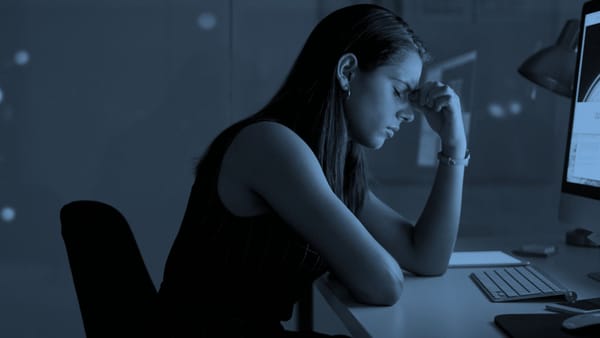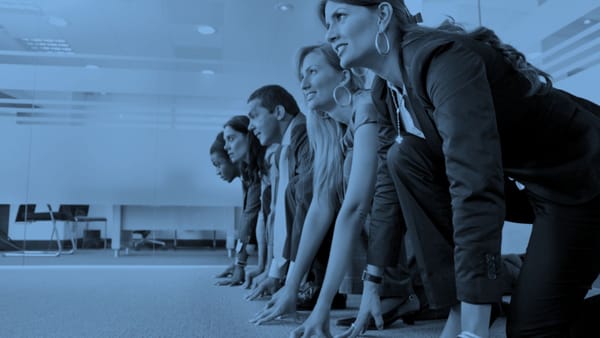From there to here

The Anniversary edition
Hi there,
I've always been interested in our perceptions of the passing of time. Personally speaking, the past summer practically flew by, while I know the upcoming 'dark and wet season' is going to feel a lot longer than it is. For me, at least.
I know when I'm enjoying myself, a day-long workshop can feel like it's passed in the blink of an eye. Give me a stack of paperwork to deal with and it'll feel like an eternity. Sit me in front of a piano and I'll lose track of time completely.
🥳 Happy Birthday, WorkLifePsych

So I'm facing this month's tenth anniversary of launching WorkLifePsych with a mixture of excitement, awe and bemusement. I mean, I love a celebration and marking ten years is going to be fun! I'm slightly in awe, as setting up my own business has always been a goal of mine, and to look back at a successful and fun ten years of business frankly stops me in my tracks.
Bemusement? I frankly can't believe it's been ten years. A decade. A massive slice of my time on this earth. Doing more and more of the work I'm passionate about, with people I admire and respect. Visiting interesting places, learning about new industries, making new and life-changing friendships.
And all because of work.
You'll probably realise it hasn't all been plain sailing! There's rarely a straight line between points in life, but as I look back from this vantage point of the present day, the last ten years have been overwhelmingly rewarding, fulfilling and fun. And those difficulties and setbacks? With the benefit of hindsight, I can see how they represented opportunities to learn and grow. (Tough in the moment, mind you!)
My work is all about people and none of this would have been possible without a whole bunch of very special people. The list of people to thank is too long to include in a newsletter like this, but I want to call attention to a few.
I want to thank those clients who took a punt on me in those first few months. And the growing list of clients who've joined the WorkLifePsych community ever since. I want to thank the associates that have supported me on our larger projects, for both their expertise and their ability to help me have fun as we queue for yet another flight or another long train journey.
I especially want to thank my partner Frank, for his unfailing support and belief in me. And my extended family for every bit of moral support they send my way.
Traditionally, a tenth anniversary is marked by gifts of tin or aluminium, but... no thanks! 🤣 However, if you'd like to put a smile on my face this month, you could:
- Subscribe to my growing YouTube channel
- Recommend the podcast to a colleague or friend
- Drop me a note and share your favourite memory of working with me
Finally, without wishing to tempt fate, I'd like to hope for another ten years just like these. I know I'll be a very grateful person if it all unfolds that way.
🧠 Stop trying to remember everything!

In the latest episode of my podcast, I'm joined by Prof. Antonina Pereira, a neuroscientist at the University of Chichester.
When we usually think of memory, we think of recalling our past. Antonina's expertise is in prospective memory, which is our ability to remember to do things in the future. Pick up some milk, put out the bins, dial in for that meeting, book those tickets, etc.
One of the things we explore together is the benefit of 'outsourcing' this kind of memory to an external system. This could be a post-it note, a calendar reminder or a task management app. The point is, it's ultimately unsustainable to rely on this kind of memory for all future tasks, so why not make life a bit easier for yourself?
The most fundamental principle of the organized mind, the one most critical to keeping us from forgetting or losing things, is to shift the burden of organizing from our brains to the external world. If we can remove some or all of the process from our brains and put it out into the physical world, we are less likely to make mistakes.
Daniel Levitin, ‘The Organised Mind’
You can listen to this episode here and watch a video of our discussion on my YouTube channel. Thanks to Antonina for being such a great guest.
🎥 The spaces in between
Speaking of videos, the latest coaching video I've published focuses on the time in between coaching sessions.
Those of you who have worked with me in a coaching context know how much I emphasise the importance of taking action between sessions. Without any kind of action, coaching is just a series of conversations.
But I regularly receive the legitimate question in return: when do you expect me to do this?!
Fair enough 😄 We've all got a lot on our plate and it can seem overwhelming to wonder how you'll find another few hours for your coaching 'homework'!
In this video, I explore a simple way of approaching this: finding the little spaces in between other activities, to practice reflection, thinking skills, mindful focus and emotional awareness. These things needn't take hours, and are a great example of things done well when done little and often.
📅 Some dates for your diary
It's not long until the first of two wellbeing-focused workshops, which form part of my 'Thriving at Work' initiative.
If you're responsible for wellbeing in your organisation, these workshops are perfect for you.
- On September 18th, I'll be co-facilitating a workshop in Edinburgh with the team from World of Work Project, all about how to be more evidence-based when it comes to your workplace wellbeing initiatives. You can find out more about the session and book your place via this link.
- On October 24th, I'll be running a similar session in London, assisted by the always-excellent Dr. Rachael Skews. As well as busting some common myths about workplace wellbeing, we'll explore how an evidence-based activity like Acceptance and Commitment Coaching can boost wellbeing at work. Reserve your place here.
Thanks for reading and, as ever, please get in touch with your questions and feedback. I love to hear from readers.
All the best,
Richard




